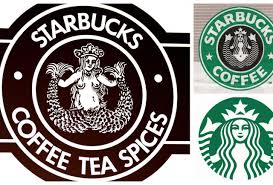
The largest beverage category by volume in the US in 2016 was bottled water which surpassed carbonated drinks.
This trend was epitomized last week when Pepsi announced its $3.2 billion acquisition of at-home seltzer maker SodaStream and the taking of a minority stake by Coca Cola in BodyArmor.
The trend of shifting towards healthier beverages in the US has never been as discerning as now and it has now permeated the consumer package goods segment and moved into the restaurant space. For example, continued sales declines in its Frappuccino line was reported by Starbucks during its Q3 earnings report last month.
That category used to account for a large portion of the revenues of the company with a growth of 17 per cent in fiscal year 2015. But this category has been hit by “rapidly changing consumer trends” as acknowledged by the company’s CEO Kevin Johnson during June’s Oppenheimer Consumer Conference. There was 3 per cent dip in the month of may in this category for Starbucks.
“That entire category in the industry is in decline. These are oftentimes more indulgent beverages – higher in sugar, higher in calories,” Johnson said. “What we’re seeing is consumers shifting to healthier beverage choices, better-for-you beverages.”
Blonde Espresso, Teavana Shaken Iced Tea infusions, Nitro Cold Brew are among the product categories that are part of Starbucks’ response to this shifting trend. The company last week introduced the almond and cacao plant-based protein blended cold brews – which is the latest one. Accounting for 50 per cent of Starbucks’ business, cold beverages have now transformed into a year-round occasion according to a company spokesperson.]
“While not yet enough to offset sales declines in Frappuccino sales, we see substantial accretive growth from draft, refreshers, tea and cold brew platforms,” COO Rosalind Brewer said during the company’s most recent earnings all. “In general, consumer demand for cold beverages has grown from 37% of sales five years ago to more than 50% of sales today.”
The millennial male consumers apparently are the one that most like the cold brew, Brewer added.
“When we wrap our arms around our consumer-driven needs for the growth in our business and innovation, it sends us directly towards a cold platform. … We actually feel pretty good about our beverage lineup and the innovation pipeline,” she said.
There is a strong demand in both protein and plant-based food offerings and the clod brews which are made up of plant-based protein, fit well in that demand. The growth in sale of plant-based food last year was 8.1 per cent and accounted for over $3.1 billion in sale. The growth rate of plant-based proteins was 6 per cent.
This shift in trends has been beneficial already to Starbucks. more protein to its Protein Boxes was added last year by the company and the category has seen a growth rate of 20 per cent annually in the last two years.
(Source:www.forbes.com)
This trend was epitomized last week when Pepsi announced its $3.2 billion acquisition of at-home seltzer maker SodaStream and the taking of a minority stake by Coca Cola in BodyArmor.
The trend of shifting towards healthier beverages in the US has never been as discerning as now and it has now permeated the consumer package goods segment and moved into the restaurant space. For example, continued sales declines in its Frappuccino line was reported by Starbucks during its Q3 earnings report last month.
That category used to account for a large portion of the revenues of the company with a growth of 17 per cent in fiscal year 2015. But this category has been hit by “rapidly changing consumer trends” as acknowledged by the company’s CEO Kevin Johnson during June’s Oppenheimer Consumer Conference. There was 3 per cent dip in the month of may in this category for Starbucks.
“That entire category in the industry is in decline. These are oftentimes more indulgent beverages – higher in sugar, higher in calories,” Johnson said. “What we’re seeing is consumers shifting to healthier beverage choices, better-for-you beverages.”
Blonde Espresso, Teavana Shaken Iced Tea infusions, Nitro Cold Brew are among the product categories that are part of Starbucks’ response to this shifting trend. The company last week introduced the almond and cacao plant-based protein blended cold brews – which is the latest one. Accounting for 50 per cent of Starbucks’ business, cold beverages have now transformed into a year-round occasion according to a company spokesperson.]
“While not yet enough to offset sales declines in Frappuccino sales, we see substantial accretive growth from draft, refreshers, tea and cold brew platforms,” COO Rosalind Brewer said during the company’s most recent earnings all. “In general, consumer demand for cold beverages has grown from 37% of sales five years ago to more than 50% of sales today.”
The millennial male consumers apparently are the one that most like the cold brew, Brewer added.
“When we wrap our arms around our consumer-driven needs for the growth in our business and innovation, it sends us directly towards a cold platform. … We actually feel pretty good about our beverage lineup and the innovation pipeline,” she said.
There is a strong demand in both protein and plant-based food offerings and the clod brews which are made up of plant-based protein, fit well in that demand. The growth in sale of plant-based food last year was 8.1 per cent and accounted for over $3.1 billion in sale. The growth rate of plant-based proteins was 6 per cent.
This shift in trends has been beneficial already to Starbucks. more protein to its Protein Boxes was added last year by the company and the category has seen a growth rate of 20 per cent annually in the last two years.
(Source:www.forbes.com)














